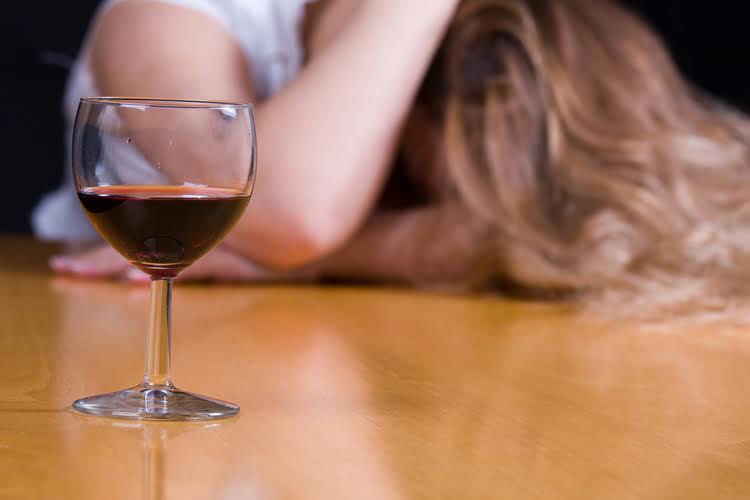No hay productos en el carrito.
@CarneBlog Lorem ipsum dolor sit amet, consectetur adipiscing elit. In laoreet, enim nec venenatis luctus http://bit.ly/896302
14 minutes agoIf you do have an alcohol dependency, you should take the crucial step of seeking professional medical help to safely treat your AUD. Trying to quit cold turkey on your own can lead to withdrawals, which can cause new health risks, such as experiencing an REM sleep behavior disorder. As you address your alcohol dependency under medical supervision, better-quality sleep is only one of the valuable benefits you’ll experience. Research shows that between 33% and 40% of people who consume alcohol experience mild to severe anxiety.

However, those
with delirium tremens did have altered rhythms (Mukai et al.
1998; Fonzi et al. 1994). Kuhlwein, Hauger and Irwin (2003) reported lower cortisol early in
the night and higher levels later in the night in their African American alcoholics after
two weeks. The percentage of (A) slow wave sleep (SWS) and (B) rapid eye movement (REM) sleep in the
first half of the night across multiple nights of drinking. Data are drawn from (Feige et al. 2006; Prinz et al. 1980; Rundell et al.
1972). In a 2011 study published in the journal Alcoholism, Clinical and Experimental Research, men and women consumed the same amount of alcohol before going to bed.
The circadian rhythm is responsible for keeping the body anchored to a 24-hour cycle. As part of this 24-hour cycle, the body releases a hormone called melatonin to prepare us for sleep in the evening. Older studies have found that drinking alcohol before bedtime lowers melatonin levels and interferes does alcohol cause insomnia with core body temperatures, which in turn impacts sleep quality. Although consuming alcohol before bedtime helps you fall asleep faster, the popular beverage negatively affects overall sleep quality. When you consume alcohol before bed, your body metabolizes the alcohol throughout the night.
That’s right, the traditional “happy hour” time is actually when the body is most prepared to process that cocktail. If that mimosa with brunch hits you particularly hard, it may be the result of circadian timing. The liver acts as a filtering system for the body, helping metabolize food and chemicals (including alcohol itself), and pulling toxins from the bloodstream. https://ecosoberhouse.com/ Like nearly all of the body’s organs, the liver functions according to circadian rhythms. Alcohol interferes with these circadian rhythms regulating the liver, and can contribute to compromised liver function, liver toxicity, and disease. Alcohol is the most common sleep aid—at least 20 percent of American adults rely on it for help falling asleep.
Anyone experiencing insomnia should speak with a doctor to learn more about what treatments may work best for them. Consuming certain substances, such as alcohol, can disrupt sleep schedules. An uncomfortable sleep environment can make getting a good night’s rest challenging. Singh likened it to a washing machine trying to complete a cycle while a child keeps opening and closing the door. “It will complete its process, but it’s going to keep stopping and starting,” he said. Alcohol intake was broken down into “low,” “moderate,” and “high” — categories that were calculated based on the participants’ body weight.
Any subjects diagnosed with hypertension, diabetes, ischemic heart disease, stroke, or chronic musculoskeletal diseases and undergoing treatment at the hospital for any of these conditions were defined as having chronic disease, for the purposes of this study. Subjects who reported that they exercised 3 times or more per week were defined as regular exercisers. REM sleep is vital for healthy brain development, the National Sleep Foundation noted. Not getting enough REM sleep can make concentrating difficult, cause forgetfulness and leave people feeling excessively sleepy during the day. Poor sleep can also contribute to a wide range of health problems, according to the NIH, including obesity, high blood pressure and depression.
An older study concluded that alcohol might reduce sleep in the first half of sleep and increase disruption in the second half. For people who have trouble sleeping, Dry January may be a great opportunity to determine whether alcohol may be interfering with your sleep, said Deirdre Conroy, the clinical director of the Behavioral Sleep Medicine Clinic at the University of Michigan. In this study, we used PASW SPSS Statistics ver. 18.0 (SPSS Inc., Chicago, IL, USA) for statistical analyses with significance level set at less than 0.05 for all statistical operations. We performed chi-square tests and independent sample t-tests to assess gender differences in initial reports of underlying disease, smoking status, exercise frequency, depressive symptoms, and anxiety symptoms.
Another possibility is that alcohol abuse leads to long-lasting
neurochemical changes in the brain stem. Figure 2 (adapted from (Colrain, Turlington, and Baker 2009b) gives an example of the
proportions of wakefulness (pre-sleep and throughout the night), and different sleep stages
in alcoholic and control men and women. Alcohol may also exert some of its effects on sleep by influencing the circadian rhythm.
@CarneBlog Lorem ipsum dolor sit amet, consectetur adipiscing elit. In laoreet, enim nec venenatis luctus http://bit.ly/896302
14 minutes ago@CarneBlog Lorem ipsum dolor sit amet, consectetur adipiscing elit. In laoreet, enim nec venenatis luctus http://bit.ly/896302
14 minutes ago@CarneBlog Lorem ipsum dolor sit amet, consectetur adipiscing elit. In laoreet, enim nec venenatis luctus http://bit.ly/896302
14 minutes ago@CarneBlog Lorem ipsum dolor sit amet, consectetur adipiscing elit. In laoreet, enim nec venenatis luctus http://bit.ly/896302
14 minutes ago PLANTA PRINCIPAL
Avenida la Rosita No. 17-26,
Bucaramanga - Santander
C.C. Cañaveral local 130, Floridablanca - Santander
Cra 15 No.33-45 local 17 A Bucaramanga - Santander (607) 6422533
Cra. 45 No. 70-162 Centro Comercial Suri Local 9 321 210 5416
El Bosque Diagonal 21b # 55-195 Bodega # 8 Establecimiento Global Gardic. 317 372 6966
310 859 6981
321 205 1233
317 372 6360
317 372 6947
317 3726947
Nacional: 313 487 6021